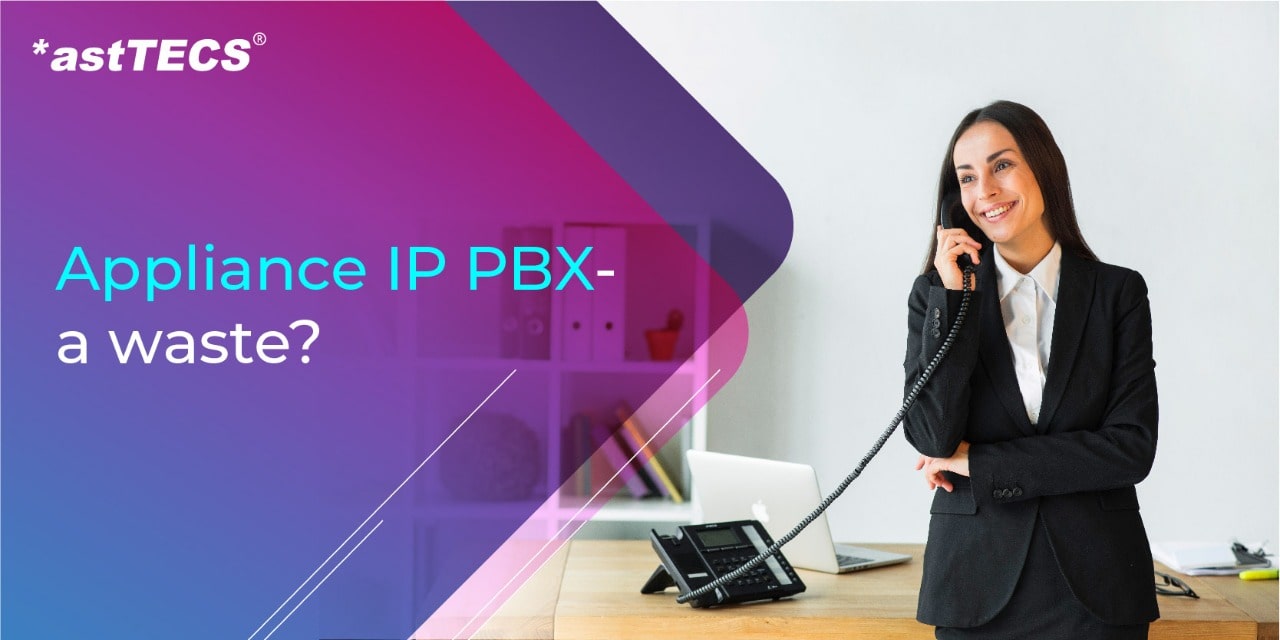Appliance IP PBX – a waste?
IP PBX stands for Internet Protocol Private Branch Exchange. As the name suggests, IP PBX is a device used in enterprises to route calls from and to the organization. Search for cheaper products has hit the IP PBX world also – the vendors started bringing out appliance-based IP PBXes, which only can fulfill 20-30% of the original functionality. In other words, buying Appliance IP PBX is as good as buying an EPABX.
As the business grows, it becomes necessary to automate the processes and to maintain the customer relationship. Your team can sit back with the proper equipment and automated processes. Imagine a receptionist routing a call manually in a business enterprise, call recordings not available, and calls not answered properly and so on. IP PBX can solve all these problems with one central place to manage all the inbound and outbound calls. Integrating the single device with desk phones, VoIP phones, mobiles, and softphones is an added advantage of IP PBX. Other benefits are IVR, call queuing, call recording, voice mail etc.
When deciding between IP PBX or Appliances, it’s essential to know the difference between the two devices. For one thing, IP PBX is meant for large enterprises, and if you are looking for automating the process, integrating CRM, and handle a large volume of calls, then IP PBX is the only solution.
On the other hand, appliance-based IP PBX is specially designed for small businesses. Appliance based IP PBX doesn’t have wide functionalities which can fulfill all the demands of business communication. Appliance PBX cannot adapt to growing business requirements.
Integration of Software and Tools:
As business evolves and grows, data increases, and you need to automate the process to handle data. Do your agents toggle between windows and software, copy data from sheet to others, and then rewrite the content?
If yes, then you seriously need to consider integrating your business phone system with the software and tools. IP PBX can be easily integrated with popular CRM’s such as SalesForce, Zoho, Vtiger, Leadsquared, productivity tools, and mobile devices, whereas small business PBX lacks this feature and is not efficient enough to integrate with all the software and tools.
VoIP PBX can also be easily configured with ERP solutions such as SAP, Odoo etc. Collaboration being the most talked topic recently due to COVID, it is important for businesses to be on collaboration platforms to improve communication while working from home. IP PBX can also be integrated with collaboration tools like Microsoft Teams and Slack while appliances lack these configuration features.
Flexibility to Customize the System:
Customization is the idea that has attracted millennials, and it is USP for most of the businesses today. Customized devices and software are expensive affairs but are best for enhancing customer experience.
Open Source IP PBX can be easily customized as source code is available, while appliance-based VoIP PBX can’t be customized due to code accessibility limitations. VoIP PBX dashboards are easily customizable according to business requirements.
Data Storage Constraints:
The world is moving on data. Companies with data can quickly expand their tentacles across most of the technologies. Data helps to stretch the customer experience more, and with data analytics, organizations can deliver the best customer support.
IP PBX has inbuilt large data storage that can store voice records in bulk, while appliances don’t have much data storage and can store voice recordings for a few weeks. After that, you will have to change the storage device to keep the call recording further.
Cost Reduction:
Pure IP trunks are cheaper than traditional trunks. For e.g. if a call to the US from India costs Rs. 4 with a traditional trunk provider, it will cost Rs. 0.6 through a VoIP Provider. IP PBX can inherently make use of this facility.
Conclusion:
Both IP PBX and appliance-based PBX systems have complex architectures. But, the points explained above clearly explain the advantage of IP PBX devices over appliance-based PBX from a customer functional point. IP PBX solution solves the challenges thrown by organization growth. VoIP PBX can easily handle large volumes of calls, complex integrations, and remote working. Perhaps, most importantly, IP PBX can support the complicated tasks of a growing team.
IP PBX remains an effective tool to address the primary concerns of most businesses, like cost reduction, employee productivity, and operational effectiveness.
Still, confused in deciding on IP PBX or appliance-based IP PBX system?
Contact us our VoIP experts will guide on chasing the best solution based on your business requirements.




Leave A Comment